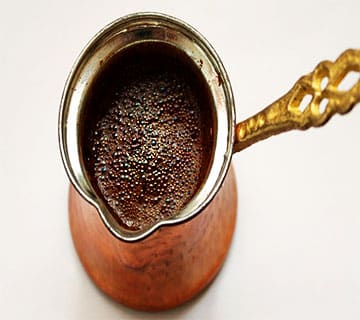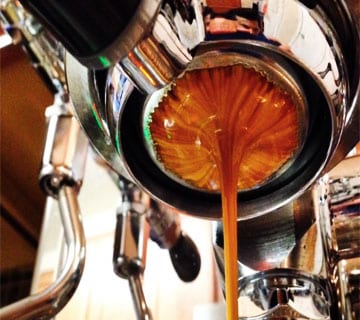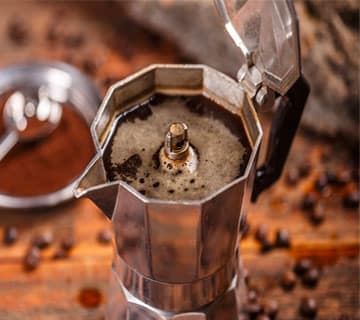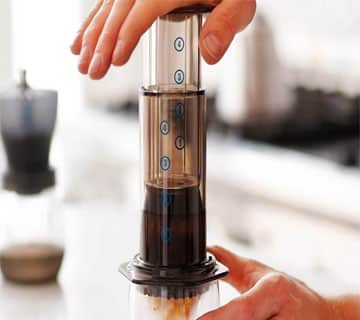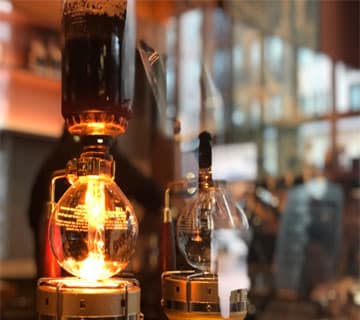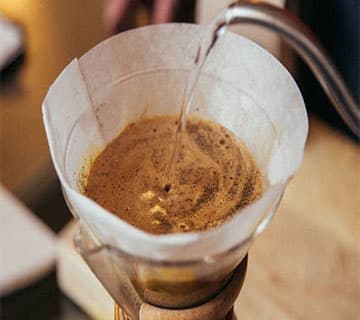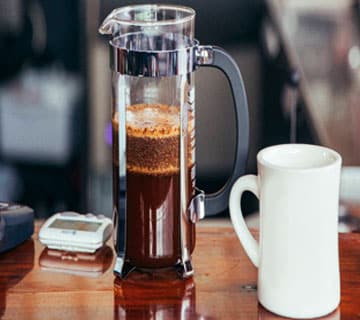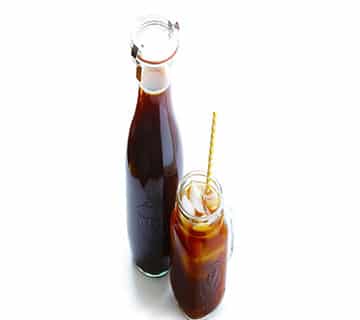Coffee Lover's Coffee Guide
Hello, and welcome to our coffee guide! We compiled this guide based on the most common questions we receive. We hope you find it interesting and helpful!
Some General Coffee Info
Arabica vs. Robusta
Altitude and coffee
As a general rule, the higher the altitude, the harder it is for many plants to thrive. Perhaps counterintuitively, the resulting lack of competition is actually beneficial for the plants that do survive (such as specially adapted, heirloom arabica coffee varieties). Additionally, the high altitude forces the coffee cherries to ripen more slowly, producing beans which are harder and denser, jam-packed with all those delicious flavours so loved by coffee enthusiasts around the world.
What is specialty coffee?
The widely accepted definition of specialty coffee is coffee scoring 80 points or above on the 100-point Coffee Review scale. Coffee scoring from 90-100 is graded Outstanding, coffee that scores 85-89.99 is graded Excellent, while coffee scoring 80-84.99 is graded Very Good.
In an attempt to objectify something inherently subjective, the Specialty Coffee Association (SCA) has defined a series of detailed specifications, effectively standardising every stage of coffee production. Allowable defects in green beans, water standards, brew strength, and coffee grading process, are all bound to set and standardised definitions.
At the time of this writing, all our coffee received a SCA score of at least 83+, with some of our coffee even scoring above 86. We will soon carry 80+ coffees at a relatively economical price, and some pricey, though extremely enjoyable, 95+ coffee.
In this section, we’ve compiled a few of the main points we’ve gleaned from holistic and medical health gurus. Coffee is one of the most heavily studied substances in the world. Certain conclusions,
such as “trace amounts of pesticides, fungicides, and herbacides are found in non-organic coffee”, are broadly true. Therefore, we recommend moderate consumption of only high quality, organic coffee.
1. There have been a number of studies which have documented a positive correlation between overall health and coffee consumption, with those consuming a moderate amount of coffee (2-4 cups a day) showing an 8% – 15% reduction in risk of death.
2. Studies have shown coffee drinkers as a whole may have reduced risk of several different diseases , such as:
cardiovascular disease, type 2 diabetes, Parkinson’s disease, uterine and liver cancer, cirrhosis and gout.
3. Coffee is particularly rich in several powerful antioxidants. Antioxidants effectively disarm free radicals in your body, thus protecting against oxidative stress, a key player in aging and many other diseases.
4. Coffee can provide a burst of energy, motivation, and strength for one’s broader cardiovascular exercise regimen.
1. Unfiltered coffee (such as Turkish coffee and coffee brewed in a French press) contain cholesterol-raising ingredients, oily substances called diterpenes. These diterpenes are mostly filtered out by paper filters, so if you’re watching your cholesterol, better to drink paper-filtered coffee, or stick to some righteous herbal tea.
2. The WHO has warned that drinking beverages at temperatures hotter than 65°C / 149°F may increase the risk of esophageal cancer. So whichever brew you choose, it’s best to let it cool a bit before enjoying. We recommend a drinking temperature between 120°F – 140°F (49°C – 60°C).
3. Too much coffee can stress your nervous system, impairing sleep, give one the “jitters”, and trigger feelings of anxiety. For those experiencing such effects, it can be helpful to reduce caffeine intake, drinking decaf or a partially decaf blend, or an herbal tea.
― Hippocrates
https://www.researchgate.net/publication/281588082_Effect_of_Household_Coffee_Processing_on_Pesticide_Residues_as_a_Means_of_Ensuring_Consumers%27_Safety
The world of grinders
Grinding coffee fresh is extremely important. Why? Because when you grind coffee, you’re increasing its surface area by more than 10,000 times, which rapidly oxidises all of its delicate aroma and flavour compounds. The first compounds to disappear are the sweet-smelling
Blade grinders and blenders
Many coffee aficionados would be simply appalled that we would even think to include ‘choppers and blenders’ as a valid grinder option. And in a way, they’re right. These grinders basically just slice ‘n dice the coffee into random bits of chopped madness, making the grind very non-uniform, causing problems in clarity and extraction. Regardless, the fact remains that many folk do not want to invest in an artisan grind setup, making these choppers a working budget substitute. And, with some practice, you can make a very enjoyable cup of coffee with them, making, for example, a very respectable cold brew.
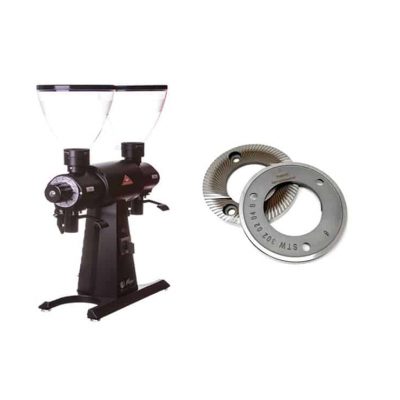
Conical burr grinders
These type of grinders are the most common among home coffee enthusiasts. They can use either ceramic or steel burrs. Be warned: hand-cranked grinders provide a morning workout. While there is something satisfying and zen-like with hand grinders, many people simply don’t have the time or patience for them. Fortunately, electronic grinder options abound, but remember: you get what you pay for. Also: the majority of even the best prosumer grinders struggle to make a proper Turkish grind. So if Turkish is your choice of preparation, this will require special consideration when purchasing a grinder.
aldehydes, closely followed by the buttery aromas. Next, the earthy pyrazines make their exit. To make matters worse, as aldehydes continue to oxidise, they create a new set of pungent compounds which then mix with sulfur compounds, creating off-notes of green pea and ash. Yay.
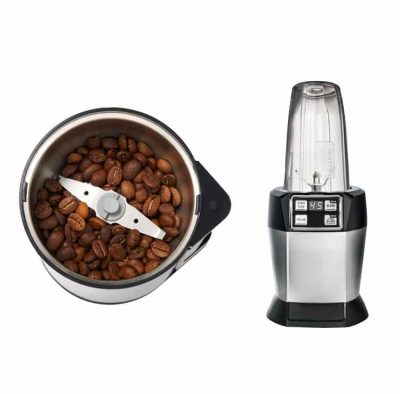
Disc burr grinders
Professional large diameter disc burr grinders such as this Mahlkonig ekk43 are the best grinders this world has to offer, and are the standard for specialty coffee baristas everywhere. They are also quite expensive. Why? They provide highly uniform grinds and remain cool, even when grinding large volumes. This is important because a small burr grinder can become so hot it actually cooks the beans further as it grinds, destroying aromas.
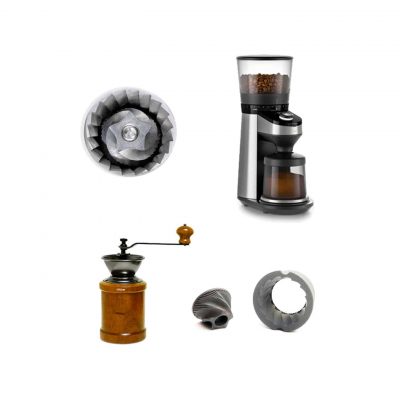
Coffee Preparation Methods
No matter if you just wish to explore the many different methods of brewing coffee, or to specifically up your game in only one, you’ve come to the right spot! Heads up: all methods require a scale and a timer if you want to achieve a consistent brew.

